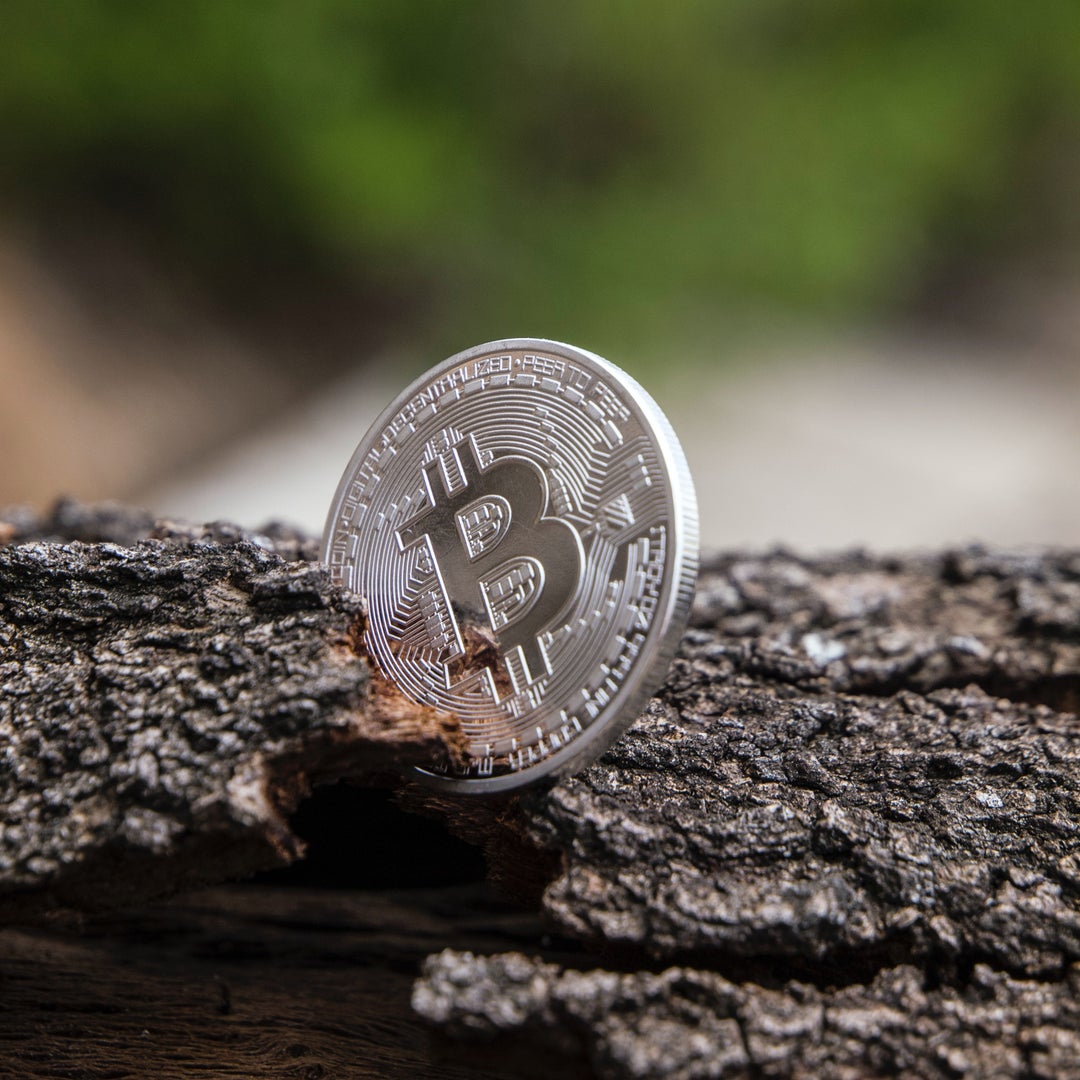How to Invest in Bitcoin

Bitcoin — a type of cryptocurrency that first came onto the scene in 2009, and is now one of the largest and best-known digital currencies — frequently makes headlines with its high volatility.
Even with the dramatic ups and downs that Bitcoin investors weather, buying a piece of the virtual asset is one way to diversify a portfolio. Diversification involves mixing up your investments so that you have a variety of different assets in your portfolio. If you experience losses in one area of your portfolio, gains in other areas can help cushion the blow.
Cryptocurrency isn’t the only way to diversify your portfolio, and it’s important to know the pros and cons before getting started. Let’s take a look at how investing in Bitcoin works so you can decide if it’s the right investment for you.
How does Bitcoin work?
Cryptocurrency isn’t issued or backed by a government entity the way the currencies like the U.S. dollar or the euro are. Digital currency is completely decentralized and doesn’t rely on a central bank. Instead, it runs on blockchain technology.
This is a database that’s managed by a huge computer network. Bitcoin transactions are processed together as a block and added to the database. It’s a permanent record that can’t be edited. If you buy or sell Bitcoin at any time, it will be visible on the blockchain.
This technology also allows for secure payments between buyers and sellers — no bank or other third party is necessary, and you don’t need to divulge any personal information. This doesn’t necessarily mean your cryptocurrency investments are “safe,” though — there are still risks, like volatility, potential hackers, and even exchange collapse (more on that later). And cryptocurrency is not FDIC insured.
3 ways to invest in Bitcoin
If you’re interested in investing in Bitcoin, there are several ways to go about it, with pros and cons for each.
Bitcoin ETFs
An ETF is a basket of investments that trades like a stock. It typically tracks a market index, such as the S&P 500, and allows investors to buy a variety of securities (a term that just means types of investments you can buy and sell). What’s more, ETFs can provide built-in diversification at a relatively low cost.
Some ETFs carve out space for cryptocurrencies. With Acorns, for example, you can choose to allocate up to 5% of your portfolio in a Bitcoin-linked ETF. Instead of investing directly in Bitcoin, it invests in Bitcoin futures. This gives you some exposure to Bitcoin by investing in its potential value, without actually having to own a piece of the cryptocurrency itself. That’s important given cryptocurrency’s volatility and the other potential risks of investing directly in Bitcoin.
Bitcoin trading platforms
You can also invest in Bitcoin by buying individual coins, or pieces of coins, through cryptocurrency exchanges. Some recognizable names include Binance, OKX, and Coinbase. Some areas have Bitcoin ATMs that allow you to buy bitcoin with a credit card or cash.
It’s important to know that cryptocurrency trading platforms have been in the headlines recently as several large exchanges have collapsed. Investors who use an exchange that collapses are at risk of losing their money.
Once you’ve bought a piece of Bitcoin, you store it in a digital wallet. Each exchange typically offers its own crypto wallet. There are two different kinds of wallets: “hot” and “cold” wallets.
Hot wallets are connected to the internet and accessed through your phone, but can come with security risks. If a hacker gains access to your wallet, or the exchange your wallet is connected to collapses, your Bitcoin could be lost for good.
A cold wallet, on the other hand, isn’t connected to the internet. An external flash drive or hardware wallet are good examples of cold wallets. Cold wallets can be more secure, though accessing your Bitcoin may feel more cumbersome, and it’s possible to misplace it because it’s a physical item.
To access your wallet, you use a pair of virtual keys. A public key receives transactions, and a private key accesses your Bitcoin and proves your ownership. It’s the only way you can retrieve your digital assets. If you lose it, there’s no password recovery function to get it back, and if someone steals it, they could access your Bitcoin and transfer it elsewhere.
Bitcoin-related stocks
Another way to get Bitcoin exposure in your portfolio is by investing in Bitcoin-related companies that are publicly traded. Bitcoin-adjacent companies could include those that are involved in Bitcoin mining (a term that describes digitally creating new Bitcoin), the exchanges themselves, or even payment companies that support the buying and selling of Bitcoin.
If it’s a public company, and it makes money by interacting in some way with Bitcoin and other cryptocurrencies, buying shares is one way to add Bitcoin exposure to your portfolio. Of course, if that company isn’t doing well, your investment could take a hit.
Is Bitcoin volatile?
When it comes to investing, there’s a direct relationship between risk and return. High-risk investments can have high potential returns — but they can also have great potential for loss.
It’s a balancing act. Having some exposure to risk can help investors grow their wealth and keep pace with inflation over the long term. At the same time, you may want more stable assets to mitigate risk. If you put all your savings into Bitcoin and it underperforms, what will that mean for your financial health?
Like all cryptocurrency, Bitcoin is considered extremely volatile. It doubled its value in 2021, but then lost most of that gain in early 2022. The truth is that no investment is a sure thing. Diversifying your portfolio can protect you against market volatility.
Is investing in Bitcoin right for you?
Before you put all your money into Bitcoin, take a step back and think about what you want to get out of investing. Your investment strategy will likely be determined by your age and risk tolerance. Your long-term financial goals are equally important.
There’s a learning curve that comes with investing in cryptocurrency like Bitcoin. And just like any other investment, returns are never guaranteed.
This content is for informational purposes only and is not intended as financial advice. The views expressed are generalized and may not be appropriate for everyone. Investing involves risk, including the loss of principal. This is not a recommendation to buy or sell a particular digital asset. Acorns provides access to BITO, a Bitcoin-linked ETF, which is considered a high-risk investment given the speculative and volatile nature. Investments in Bitcoin ETFs may not be appropriate for all investors and should only be utilized by those who understand and accept those risks. Investors seeking direct exposure to the price of bitcoin should consider a different investment. Diversification and asset allocation do not guarantee a profit, nor do they eliminate the risk of loss of principle. Carefully consider your financial situation, including investment objective, time horizon, risk tolerance, and fees prior to making any investment decisions.








